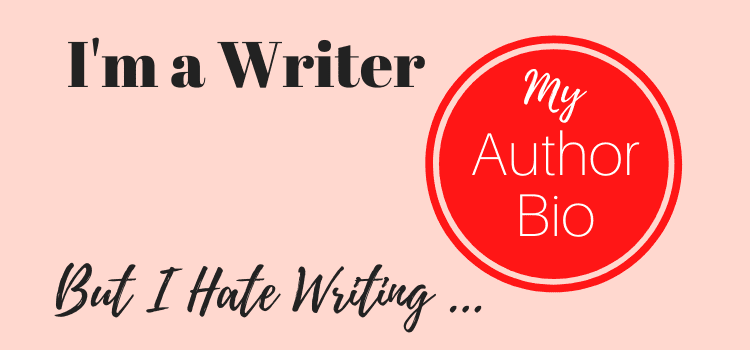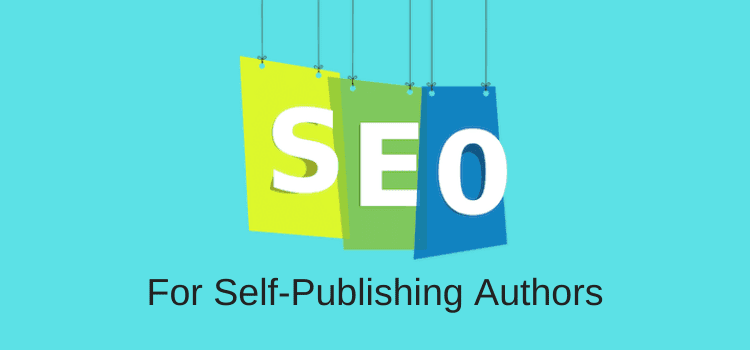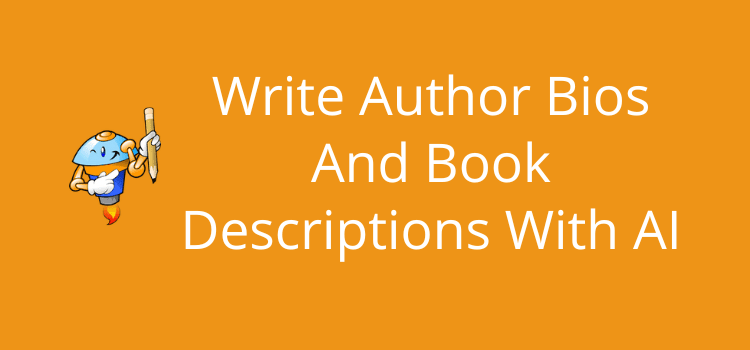
When it comes time to write author bios and book descriptions, it can be a chore for many new authors.
They are necessary for publishing a book, but finding inspiration and ideas is not always easy.
Well, here is a way to make the task a little easier. With some help from artificial intelligence (AI) tools, you can build draft outlines to help you.
I’m sure you are not keen on using AI to write. But it can be a very helpful tool for finding ideas to work with for these two elements of your book promotion.
Artificial intelligence automated writing tools are everywhere now. I’m sure you have read many articles about their impact on writing.
While I’m certainly not an advocate of using these tools to write and publish content, they can be beneficial in giving you ideas.
For drafting author bios, AI tools can help you find topics, sentence structures, and information to build an outline.
Here’s a quick example using ChatGPT. You can see that my prompt was, can you write an author bio?
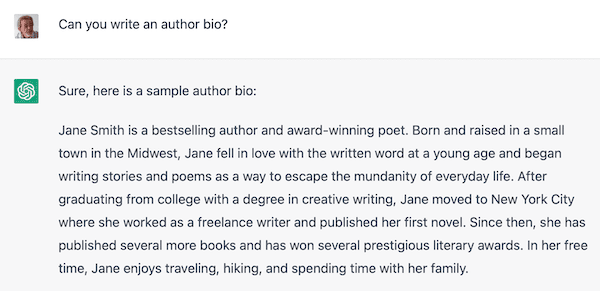
The result makes it easy to replace the author’s name and change some of the information to suit.
For my next attempt, I changed the request to ask for a bio for a science fiction author.
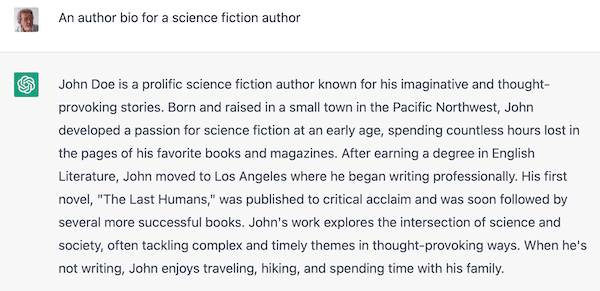
Again, the result returns a few useful ideas, so it’s a good starting point to edit and rewrite it in your own words.
You can get many more ideas if you experiment with more detailed prompts.
Working on book descriptions
Writing book descriptions is never an easy task.
You don’t want a simple summary, but finding ways to add interest takes considerable effort.
When I experimented with AI, I was surprised at the quality of the results.
The sample book descriptions were coherent and grammatically acceptable.
It’s best to try different inputs to suit your book because each variation produces a different result.
But here are a couple of results that I found interesting.
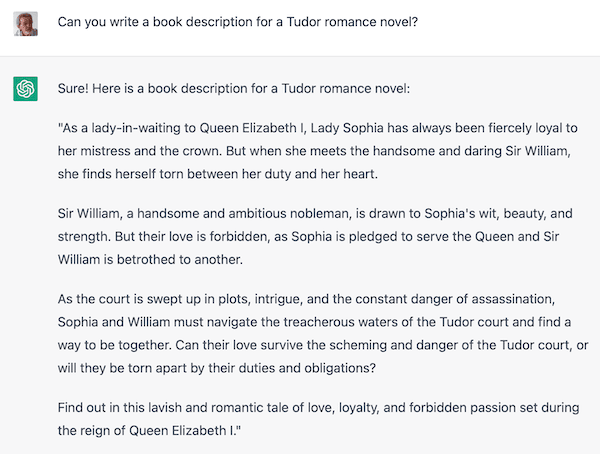
When I changed the genre in my subsequent request, the result was certainly not a copy of the same structure.
However, as in my first example, it used a question in the second last paragraph, so it was a bit formulaic.
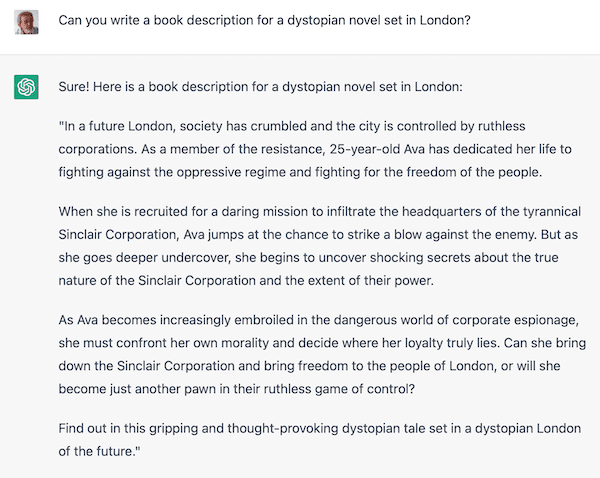
If you struggle with ideas, you can see how AI tools such as ChatGPT or Bing Copilot can help you map out the elements in your book description.
Yes, both of my examples end with the same hook line.
But that’s relatively easy to modify to suit your book.
Apart from that weakness, the texts can provide a good basis for developing different versions of your book descriptions.
AI writing tools are getting smarter
When you start experimenting with artificial intelligence writing tools, the results can be surprising.
In the past, many tools scanned the Internet for content and rephrased or spun the words and phrases they found.
But today, the tools are much more intelligent and can deliver far better original results.
Do you want to write a poem?
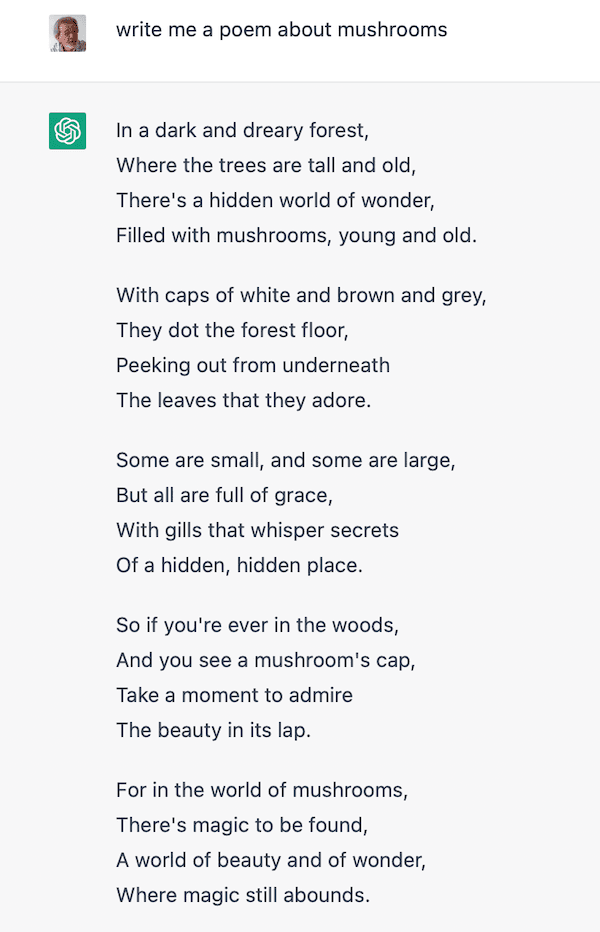
It’s not the best poem I have read. But then again, it only took seven seconds to write.
Can AI write a blog post? It’s a tempting idea.
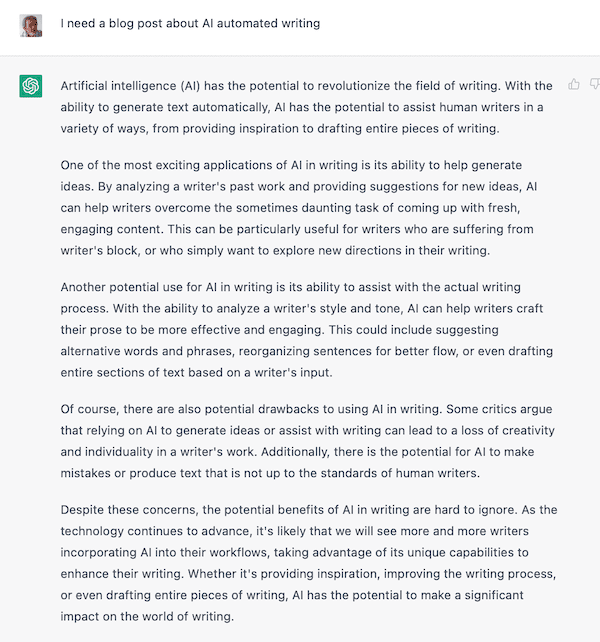
When you get results like this, you can see that AI writing is improving at quite a pace.
But even for these longer forms, it’s the same as helping you write author bios and book descriptions.
These tools can help you with ideas, and for writers, that’s the best and only use for them.
Publishing AI Writing Is A Bad Option
Yes, it’s so tempting when you see the quality of writing that AI tools can produce.
Depending on your tool or tools, they can generate anything from a short bio to a blog post, essay, or even a full-length novel.
Can you imagine how easy it would be to churn out ten, twenty, or more articles or blog posts every day?
It would be the end of creative writing if this were to happen.
Luckily, some control measures are being implemented to combat the widespread use of copying, pasting, and publishing AI material.
Google now classifies content such as this as “spammy automatically-generated content.”
Text generated through automated processes without regard for quality or user experience.
Text generated using automated synonymizing, paraphrasing, or obfuscation techniques.
What is unclear is how Google identifies automated text. Yes, it has powerful algorithms, particularly its penchant for helpful content.
However, from what I have noticed using Google Search, some of the articles that I think are automatically generated are still being indexed and ranked.
Identifying AI writing
Another initiative is watermarking AI text. It would work by embedding a signal indicating where the text came from.
However, it hasn’t proved effective and may not eventuate, but it is a sign of genuine concern.
When you think about all the online publishing platforms and options available today, AI-generated text poses a real problem.
I’m sure Amazon is considering measures, but at present, there is no mention of automated content in its terms and conditions.
However, I have read articles about successfully publishing AI-written ebooks on Kindle. So, unfortunately, I’m sure it is happening.
Publishing 100% AI writing is a gamble, but some will do it. The problem is that it is simply too easy.
Writers can only hope that limitations will be established to protect creative writing.
Conclusion
AI writing tools can help you by generating ideas to write author bios, book descriptions, and online articles.
You can often find a topic you missed in an article or a better way to structure your text.
I don’t use them often, but AI tools can be helpful occasionally if I’m struggling with new writing topics.
Can these tools replace you as a writer?
Hopefully, the answer is no.
But I have to hedge my bets because, as yet, I’m not sure search engines and publishing platforms can differentiate.
New technology always disrupts, and this is another example.
However, I’m sure that in the near future, counter-technology will prevail and continue to reward human writing.
For the moment, though, it’s a challenge.
All I can say is to use these tools wisely to help you write better and more informative content.
But don’t rely on them to write for you. Because if you do, you will no longer be a writer.
Related reading: Five Weak Words You Should Always Avoid Using In Your Author Bios
Share This Article
